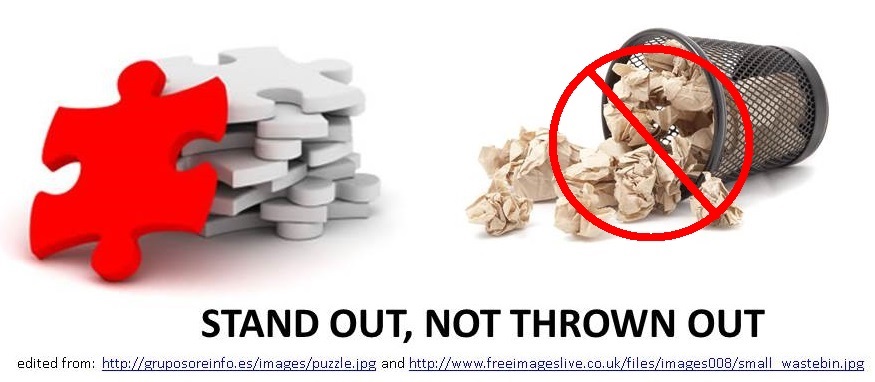The Rutgers University Career Services offers assistance to graduate students in many forms: online and offline resources, individual advising, and workshops. Admittedly, I’ve always known of Career Services, but have never taken advantage of their services before. Not wanting to miss out on this resource any longer, I decided to attend a resume writing workshop they offered specifically to graduate students. If you haven’t written a resume or CV since your graduate school application, I would recommend going to the workshops. They also have an excellent website with resources for writing resumes and CVs (http://careers.rutgers.edu/page.cfm?page_id=399).
I. CVs versus Resumes
1. CV/ curriculum vitae/ “course of life”
- overview of ALL academic achievements
- typically longer than a resume
- targeted towards academic/research audiences
- used for interview for faculty/academic positions, merit/tenure review, grant applications, manuscript submissions, speaking engagements/conferences
- provide credibility for your expertise
2. Resume
- concise snapshot of skills, expertise, and experiences relevant to position you’re applying for
- specific focus (e.g. type of industry, specific company, job position)
- used for interviews in industry or business or other
- self-advertising; must answer the question “Why are you right for this position/job?”
- Format can be:
1) chronological or functional
2) paragraph or bullet points.
There is no hard and fast rule, and the only way to find out which works best is through practice. Try writing out your resume in different formats, look at sample resumes available online, and have others critique your work until you find a style that works best for you. Be aware that some companies may require a specific format for these documents, so do your research!
II. What goes in and what stays out?
1. Include:
- Contact information: Name, professional email address, mailing address, telephone number (document is USELESS if they don’t know who you are and how to reach you); helpful to place your name on EVERY PAGE
- Objective/Summary statement: acts like the abstract of journal articles, reader may use it to decide whether or not they will read the rest of the document
- Education (degree, university, GPA optional, research projects only if relevant)
- Relevant skills (technical, laboratory, languages): quantify level of skill (e.g. extremely proficient, independent, etc)
- Relevant experience /qualifications: quantify, include results where possible (e.g. mentoring: “I’ve mentored n number of students, who have gone on to work in…etc”)
- Relevant extracurricular activities/volunteer work
2. Exclude/Unnecessary:
- picture (headshot)
- age, gender, weight, height, marital status
- salary indications (unless required)
- hobbies and interests (UNLESS USEFUL AND RELEVANT) e.g. Coaching a sports team can be translated into mentoring/leadership skills. If you phrase it properly, include it
III. Cover letter
The cover letter can stand alone or work as a complement to our CV/resume. It is a narrative that helps direct your reader’s attention to important parts of your document.
1. When to use one?
- When you’re networking at a conference and handing out your resume, YOU are your cover letter
- If you’re emailing your documents, your email can act as a cover letter!
2. Basic anatomy
Paragraph 1: Who you are, why you’re writing, referred by, source of the job posting
Paragraph 2: Succinct highlight of your primary selling points (expounded on your resume)
Closing paragraph: Call to action, request an interview, provide contact information (phone, email)
This bullet point summary is only a short version of things that seemed important and relevant to me. The speaker covered more topics beyond resume writing, and I do recommend you stepping out of the lab for an hour or so to attend the workshop yourself. For the more experienced ones who just want someone to look over what they’ve already written, dropping by Career Services during “Resume Critique Hours” (http://careers.rutgers.edu/page.cfm?section_ID=15&page_id=271) may be more beneficial.
Remember; don’t wait until you’re actually job hunting before taking the time to learn these essential career advancement skills. Practice and develop these long before you actually need them!
For additional information and resources, visit the Rutgers University Career Services website at: http://careers.rutgers.edu/section.cfm?section_id=15
